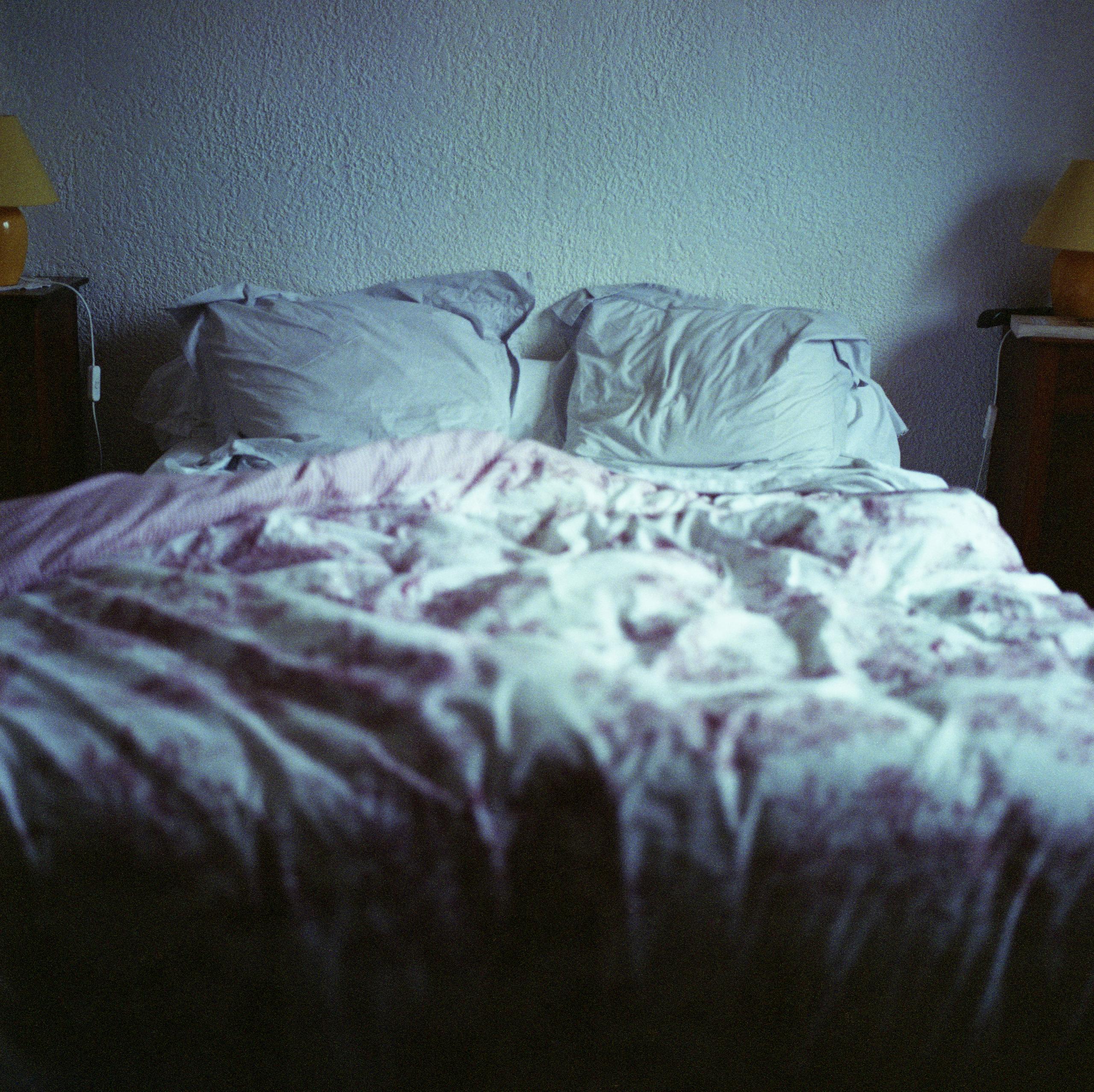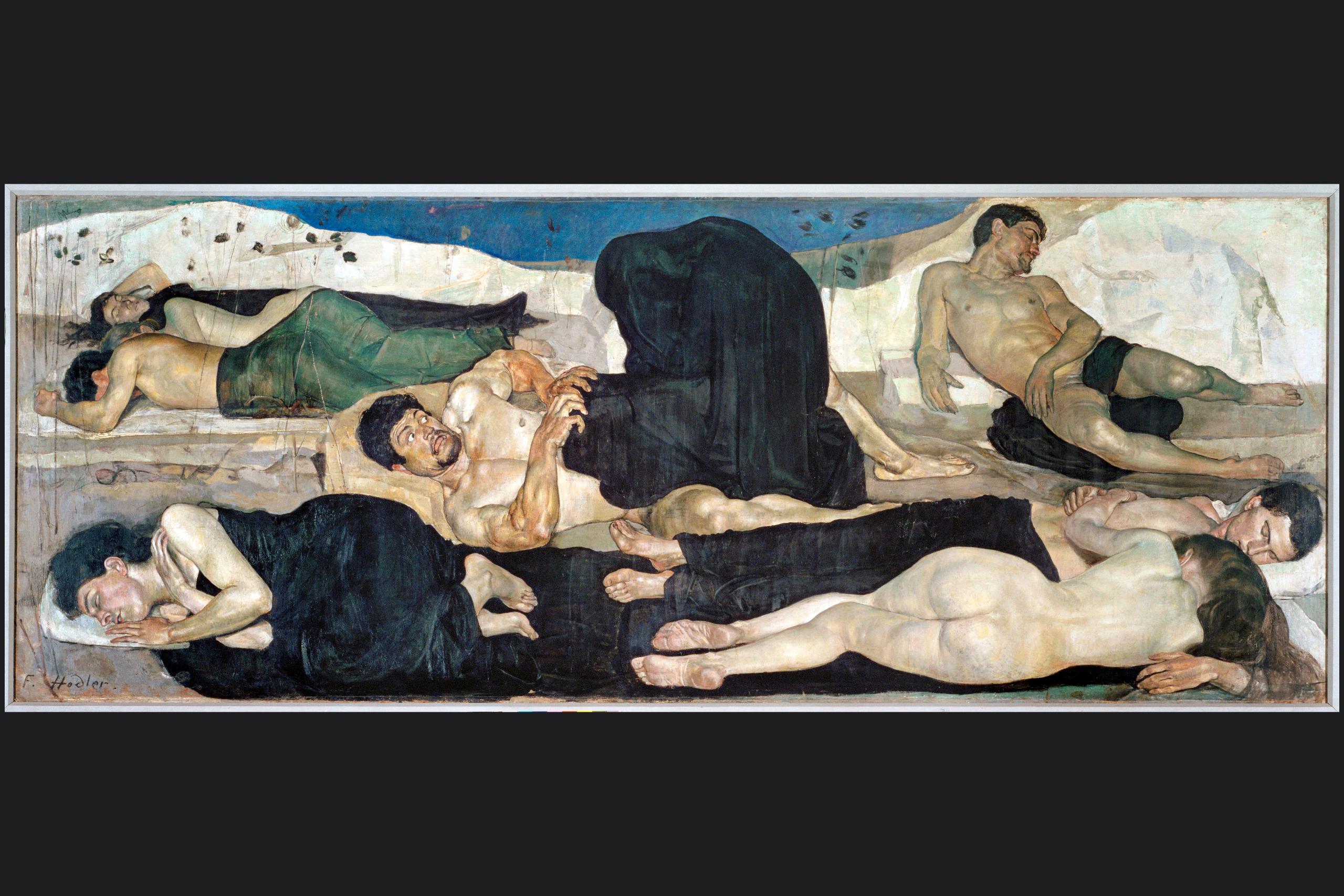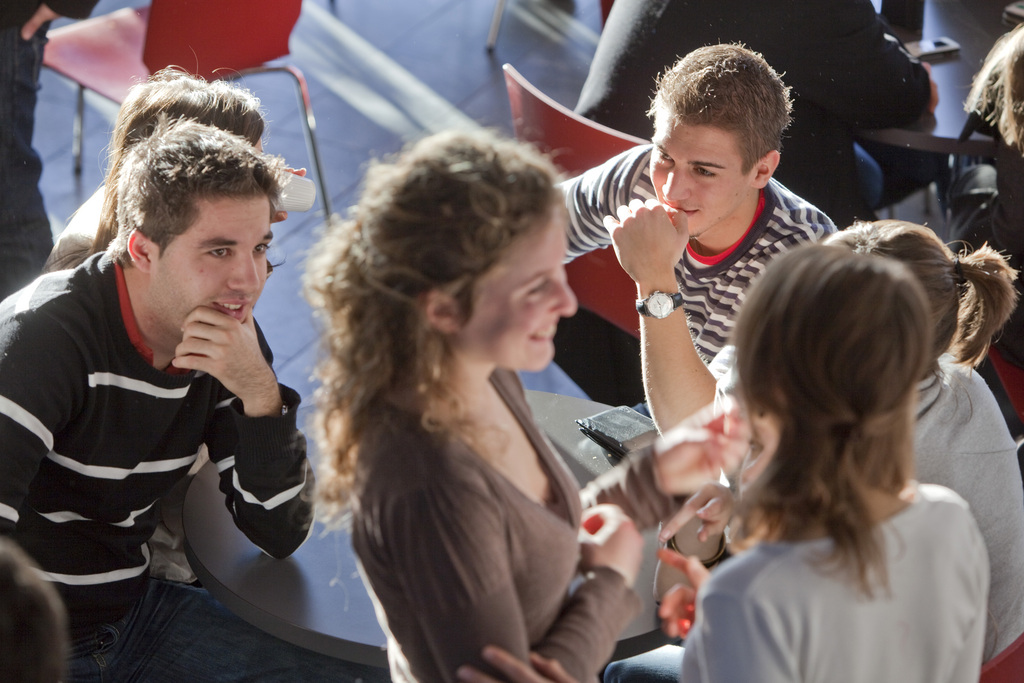Swiss getting less sleep than in past

When sleep doesn’t come, we despair. When we succumb to it, we recover. If it is taken from us, we become sick and depressed. Lack of sleep is a trend with health and economic risks, experts warn.
Newspaper articles talk of “permanent jet lag” and an “insomnia epidemic”. It’s true, people are sleeping less and worse. The Swiss sleep for seven hours and 30 minutes on an average work night – some 40 minutes less than 30 years ago. A quarter of those surveyed report mediocre or even poor sleep.
This finding comes from a study by the universities of Zurich and Basel and the Federal Office for the Environment, published at the end of 2014. The authors blame the phenomena on our “always-on society” and constant accessibility via smartphones, tablets and computers, in addition to changes in the working world and social activities that stretch into the late evening.
“Strictly speaking, people should know how much sleep they need. But few are aware that a sleep deficit can have negative consequences,” Christian Cajochen, a chronobiologist and sleep researcher at the University of Basel, told swissinfo.ch. “People should also know what sleep hygiene is. But many don’t even know about the concept.”
When discussing sleep hygiene, experts refer to the so-called “grandma rules”, such as no coffee in the evening, minimising sources of electricity and light in the bedroom, and keeping regular bedtimes.
Sleep – a riddle
Even science can’t exactly explain why we require sleep – the only thing that’s clear is that we do. This nightly act of submergence renders the body and mind fit for the next day, and helps people to process their experiences. “It’s a biologically predetermined rhythm because we are a diurnal species,” says Cajochen.
Even though sleep requirements differ for each individual – there are short and long sleepers – it’s clear to sleep researchers that there are limits. “We know from examinations in our laboratory that a person with average sleep requirements, who sleeps just six hours a night over two weeks, develops a sleep deficit and is roughly as fit as when they haven’t slept for 24 hours.” People who are used to little sleep don’t usually realise it when they have a sleep deficit.
Hibernation
During winter, 40% of the study’s respondents reported sleeping longer than usual. But one can’t talk about a “winter rhythm”, according to Cajochen. “Years ago, one didn’t have a choice but to eventually go to bed when it became dark. Today, however, one can use artificial light to transform night into day. This has benefits, but disadvantages as well.” People ignore the rhythms predetermined by nature, which in turn can have consequences for their health.

More
Sleep as art
Should people take a cue from animals and hibernate like hedgehogs and marmots, or indulge in a winter dormancy like bears? “Humans can’t; they are physiologically incapable of doing so,” says Bernd Schildger, director of the Dählhölzi animal park in Bern.
It would be good for people, however, to stop constantly chasing goal after goal without paying attention to the path they take to get there. “The way out for people won’t come from a simple decision to hibernate. We have to become aware that being active 24 hours a day doesn’t correspond to our physical and psychological resources,” says Schildger, who describes himself as someone who requires a lot of sleep.
Safety factor
It’s clear that a shortage of sleep impairs our abilities, judgement, and concentration. “Response tests have shown that an overtired person is slower and poses a security risk,” explains Cajochen. “They have the same performance in the tests as someone who has a blood alcohol level of one tenth of a per cent. There’s a risk of microsleep. This split-second sleep, which results in a loss of attention, can have devastating consequences.”
Researchers also say that the risk of making bad decisions increases when one doesn’t sleep enough. This is food for thought in light of all the conferences and meetings that extend well into the night during which important decisions are made regarding world politics, the economy or the climate. “One should stipulate a sensible sleep-awake regime for such conferences. The bottom line is, it would probably be better to let these people have a proper sleep rather than force them to sit sleep deprived through these monster meetings,” says Cajochen.
Health risk
Too little sleep is also bad for the metabolism, and contributes to weight gain and cardiovascular diseases. Also: “Sleep problems represent the highest risk when it comes to developing depression. For more than 90% of depressed patients, their depression began with a sleep disorder.”
Family doctors often underestimate sleep, according to sleep experts. When patients have problems sleeping, they receive a prescription for pills that do not provide a long-term solution. “In principle, there is no ideal sleeping pill. People who suffer from sleep problems should be treated in one of Switzerland’s many sleep clinics. They try to find the root cause of the problem rather than primarily prescribing medication,” says Cajochen.
Well-rested people are more productive, fully-functioning, cause fewer accidents and are in a better mood. Already some HR departments in Switzerland are taking an interest in sleep. “They are aware that healthy and well-rested employees have a positive impact on workplace absences.”
In comparison, sleep deficit is a risk and costs society money. In Switzerland, the cost is estimated at CHF1.5 billion ($1.6 billion).
Federal duty
Sleep is increasingly viewed as a health factor, and should also be a topic of interest for healthcare and politics, according to Cajochen. “In my opinion, it’s the duty of the state to encourage sleep hygiene, just as the Federal Office of Public Health does with nutrition. It’s an important societal issue, which costs money.”
Sleep researchers could imagine the public health office launching a prevention campaign, encouraging people to take power naps or making sure that shift workers and truck drivers are better advised and informed about the importance of sleep.
But sleep deficit as a cost trap isn’t an issue yet for Swiss health authorities. “It isn’t on the radar. We are not planning any prevention campaigns at the moment. There is no pressure from the political world like there was with nutrition or drugs,” Daniel Dauwalder, spokesman for the Federal Health Office, told swissinfo.ch.
(Translated from German by Catherine McLean)

In compliance with the JTI standards
More: SWI swissinfo.ch certified by the Journalism Trust Initiative











You can find an overview of ongoing debates with our journalists here . Please join us!
If you want to start a conversation about a topic raised in this article or want to report factual errors, email us at english@swissinfo.ch.